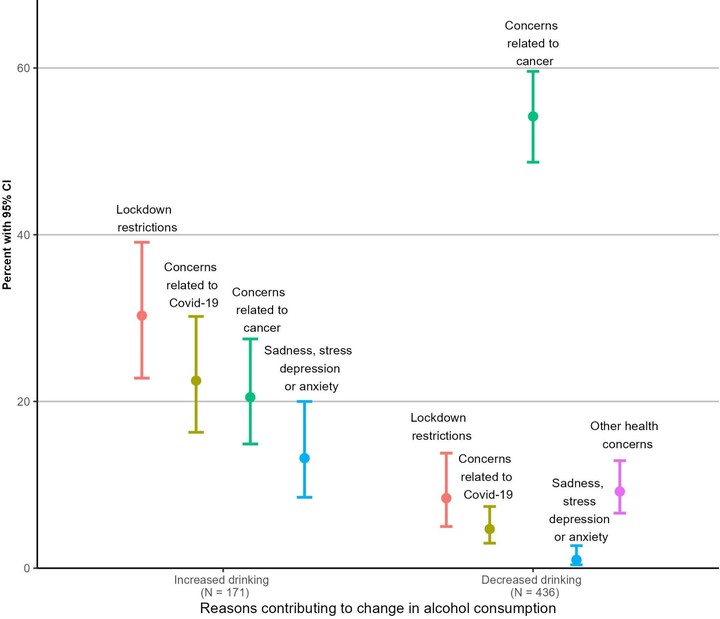Change in Alcohol Consumption During the Covid-19 Pandemic and Associations with Mental Health and Financial Hardship: Results from a Survey of Wisconsin Patients with Cancer

Abstract
Purpose: Alcohol consumption increases health risks for patients with cancer. The Covid-19 pandemic may have affected drinking habits for these individuals. We surveyed patients with cancer to examine whether changes in drinking habits were related to mental health or financial effects of the pandemic. Methods: From October 2020 to April 2021, adult patients (age 18-80 years at diagnosis) treated for cancer in southcentral Wisconsin were invited to complete a survey. Age-adjusted percentages for history of anxiety or depression, emotional distress, and financial impacts of Covid-19 overall and by change in alcohol consumption (non-drinker, stable, decreased, or increased) were obtained via logistic regression. Results: In total, 1,875 patients were included in the analysis (median age 64, range 19-87 years), including 9% who increased and 23% who decreased drinking. Compared to stable drinkers (32% of sample), a higher proportion of participants who increased drinking alcohol also reported anxiety or depression (45% vs. 26%), moderate to severe emotional distress (61% vs. 37%) and viewing Covid-19 as a threat to their community (67% vs. 55%). Decreased (vs stable) drinking was associated with higher prevalence of depression or anxiety diagnosis, emotional distress, and negative financial impacts of the pandemic. Compared to non-drinkers (36% of sample), participants who increased drinking were more likely to report emotional distress (61% vs. 48%). Conclusions: Patients with cancer from Wisconsin who changed their alcohol consumption during the Covid-19 pandemic were more likely to report poor mental health including anxiety, depression, and emotional distress than persons whose alcohol consumption was stable. Implications for cancer survivors: Clinicians working with cancer survivors should be aware of the link between poor mental health and increased alcohol consumption and be prepared to offer guidance or referrals to counseling, as needed.